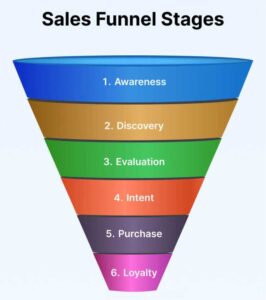A sales call isn’t just about pitching your services—it’s about discovery, connection, and trust. Whether you’re a business consultant, a digital marketing strategist, or an SEO/content marketing agency like ours, the truth is this: your success on a call depends less on how much you say and more on how well you ask the right questions.
The right questions uncover pain points, highlight opportunities, and show prospects that you’re not just there to sell—you’re there to solve. And in today’s competitive landscape, that difference is everything.
Here are the essential questions consultants should ask on a sales call to turn conversations into partnerships and prospects into paying clients.
1. “Can you walk me through your current challenges?”
Instead of diving straight into your solution, start by listening. Give your prospect space to talk about what’s frustrating them. Are they struggling with low website traffic? Is their team wasting money on ads that don’t convert? Or maybe they’re overwhelmed by content creation?
👉 Why it matters: You’ll uncover their pain points in their own words, which makes it easier to position your services later. Remember: people buy solutions to problems, not just services.
2. “What would success look like in the next 6–12 months?”
This question shifts the conversation from problems to possibilities. It allows your prospect to define what winning looks like—whether it’s ranking #1 on Google, doubling inbound leads, or finally having content that drives conversions.
👉 Why it matters: You’re helping them visualize a clear, desirable outcome. Then, you can position your agency as the bridge between where they are now and where they want to be.
3. “What solutions have you tried so far?”
Many businesses have dabbled in marketing—hiring freelancers, trying ads, or using DIY SEO tools. Asking this question tells you two things: what didn’t work and why.
👉 Why it matters: It helps you avoid repeating their mistakes and positions you as the fresh perspective they need. Plus, you’ll gain insight into how they view investments and results.
4. “Who else will be involved in the decision-making process?”
One of the most common mistakes consultants make is assuming the person on the other end of the call has the final say. Spoiler: often they don’t.
👉 Why it matters: Knowing who else has influence—partners, executives, or finance teams—allows you to tailor your proposal to resonate with all stakeholders, not just one.
5. “What’s your budget range for solving this problem?”
This question can feel intimidating, but it’s non-negotiable. Without understanding their budget, you risk presenting options that don’t fit, which can derail the deal.
👉 Why it matters: Framing it as, “So I can recommend the right solution, what range are you comfortable with?” makes it collaborative instead of pushy. This builds trust and saves time for both sides.
6. “If we solved this problem, what would it mean for your business?”
This is where you dig deeper. You’re not just talking about keywords, campaigns, or consulting hours—you’re connecting your service to their bottom line and peace of mind.
👉 Why it matters: By tying results to business growth (more revenue, happier clients, less stress), you move from being a vendor to being a strategic partner.
7. “What’s stopping you from reaching these goals right now?”
Sometimes the biggest roadblocks aren’t technical—they’re mindset, processes, or even team buy-in. This question surfaces the real obstacles and helps you understand what’s holding them back.
👉 Why it matters: You can address both visible and hidden challenges, making your solution feel not just valuable but necessary.
Why These Questions Work
When you ask smart, intentional questions:
- Prospects feel heard and understood.
- You establish authority without “selling.”
- You uncover the real reasons they need you, not just the surface-level ones.
And here’s the truth: most consultants lose deals because they talk too much about what they do instead of listening to what the client actually needs.
Final thoughts on consulting sales calls
At the end of the day, the best sales calls don’t feel like sales at all—they feel like conversations. By asking these essential questions, you’re not just gathering information; you’re building a foundation of trust and positioning yourself as a true partner in their success.
✨ Pro Tip: Before every sales call, prepare a handful of these questions but don’t treat them like a rigid script. Let the conversation flow naturally. Listen more than you speak. That’s how you’ll uncover the real opportunities and close more deals.
👉 If you’re a consultant or business owner looking to win more clients, remember this: it’s not the answers you give, but the questions you ask that set you apart.



